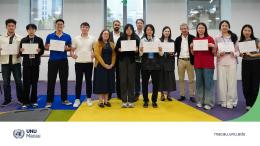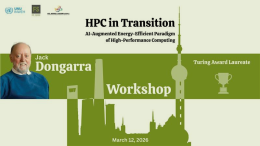The United Nations University Institute for Water, Environment and Health (UNU-INWEH) and the United Nations Environment Programme (UNEP), in collaboration with the World Health Organization (WHO) and its Regional Office for the Eastern Mediterranean (WHO EMRO), will host a regional workshop in Cairo, Egypt, from 19–21 October 2025, focused on strengthening wastewater surveillance systems across North Africa.
Bringing together government leaders and key stakeholders from Algeria, Djibouti, Egypt, Eritrea, Libya, Morocco, and Tunisia, the workshop will explore how wastewater surveillance can support public health, environmental protection, and ecosystem sustainability. Participants will exchange knowledge, share best practices, and build capacity to establish and scale up wastewater surveillance programmes within national frameworks.
The workshop is part of the broader multi-regional initiative, “Support strategies, capacity and data for global wastewater and environmental surveillance,” to empower practitioners and policymakers across Africa to strengthen surveillance for both environmental and public health resilience. Building on lessons from successful workshops in Southern and Eastern Africa, and leading up to an upcoming session in West and Central Africa, the North Africa workshop will highlight regional innovation, practical approaches to overcoming local constraints, and the importance of data sharing and literacy in scaling up wastewater surveillance across the continent.
The potential of wastewater surveillance became prominent in relation to poliovirus and was greatly accelerated during the COVID-19 pandemic. Wastewater surveillance activities were implemented in many global settings and provided an important line of data to support early detection of viruses causing COVID-19 waves. In addition, wastewater surveillance has potential to provide useful data to tackle land-based sources of pollution, maintain ecosystems services and protect freshwater and marine ecosystems. Wastewater surveillance programmes are being established and expanded to a broader array of pathogens and other targets in many global settings including as part of early warning surveillance and pandemic preparedness.
The workshop is generously supported by the European Union Health Emergency Preparedness and Response Authority (HERA).




